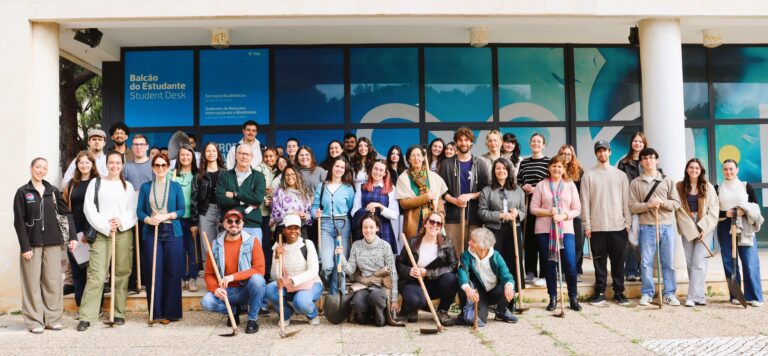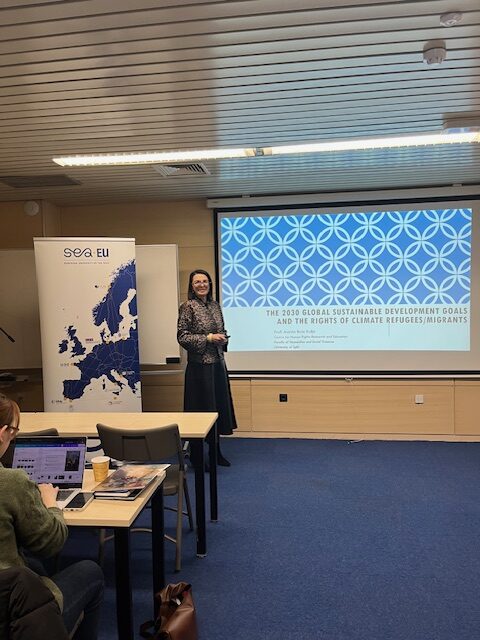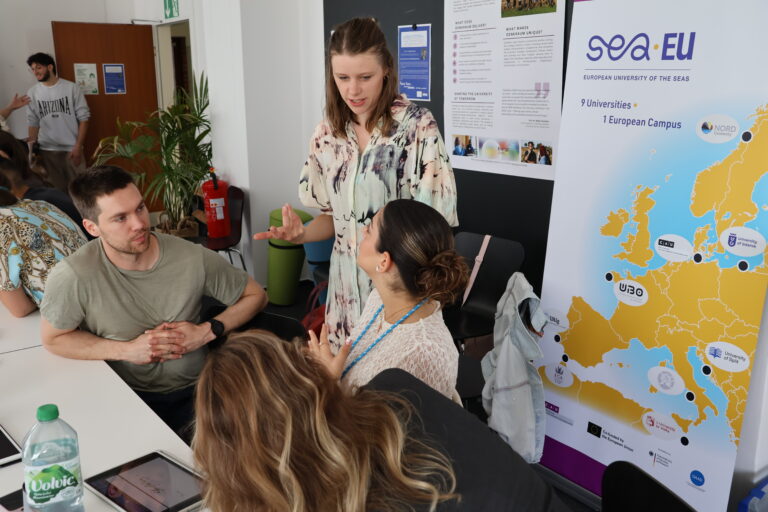The 2024 International Forum of the SEA-EU Observatory on Migrations and Human Rights, titled “The EU Pact on Migration and Asylum: New Challenges for Migration Management and Human Rights at Europe’s Borders,” was held in Algeciras. This event, held on November 7-8, was organized by the Observatory coordinators, Ángeles Jiménez and Lorena Calvo, both from the University of Cádiz.
The opening session featured contributions from Marcela Iglesias, Vice Rector for Internationalization and General Coordinator of the SEA-EU Alliance, and Fernando Pérez Peña, Director General of European Projects at the University of Cádiz. During her address, Marcela Iglesias presented an overview of the Alliance, detailing activities included in Package 5, which encompasses the Migration Observatory. Fernando Pérez, in turn, shared with attendees the opportunities available for students, researchers, and staff within the Alliance framework. Observatory Coordinator Ángeles Jiménez provided background and outlined the Observatory’s objectives before giving the floor to event coordinator Lorena Calvo, who presented the agenda.
The first day commenced with an inaugural lecture by Alejandro del Valle, Director of the Jean Monnet Centre of Excellence in Migration and Human Rights at Europe’s External Borders. His talk focused on “External Borders, Migration, and European Values: Some Reflections.”
The forum’s program included roundtables where experts from various universities in the Alliance analyzed critical topics such as human rights in the context of the new EU Pact on Migration and Asylum, the external dimension of European migration policy, and the challenges of maritime migration in the Mediterranean. Noteworthy speakers included Tanja Ellingsen from Nord University (Norway), who discussed building resilience against the instrumentalization of migrants; Marita Brcic Kuljis from the University of Split (Croatia), who examined the balance between state sovereignty and human rights in the pact; and Damian Spiteri from the University of Malta, who explored the human rights implications of migration policies.
The event saw significant student participation, with over 20 students from the Master’s in International Relations program at the University of Cádiz traveling by bus from Jerez to attend, as well as students from the International Public Law undergraduate program. This strong student turnout highlighted the great interest and relevance this event holds for younger generations, eager to engage with the challenges of migration and the defense of human rights at Europe’s borders.
The final day included a roundtable on diversity and social justice in Europe, moderated by Lorena Calvo. This session featured contributions from Elżbieta Czapka and Jakub Potulski of the University of Gdansk, who discussed Polish society’s attitudes towards migrants; Yan Zhao from Nord University, who focused on integrating diversity related to migration into social work education; and Daniela DeBono from the University of Malta, who addressed the obligations of hospitality within European reception systems.
Additionally, during the communications session moderated by Michel Remi Njiki of the University of Cádiz, several current topics were presented. These included an analysis of three years of temporary protection for Ukrainian citizens by Olena Nihreieva (University of Cádiz), examining the challenges and outcomes of this measure. Flavia Arrigoni spoke about the experience of the Casa Argentina association in Cádiz and its role in integration. The digitalization of borders in asylum processes was also discussed by Víctor Herraiz Jagerovic (Complutense University of Madrid), who explored the use of data extraction and dialect recognition in EU asylum procedures. Finally, Cristina Castilla Cid from the University of Cádiz analyzed the cooperation between the EU and Sahel countries to combat migrant trafficking, sharing lessons learned from Mali and Niger.



